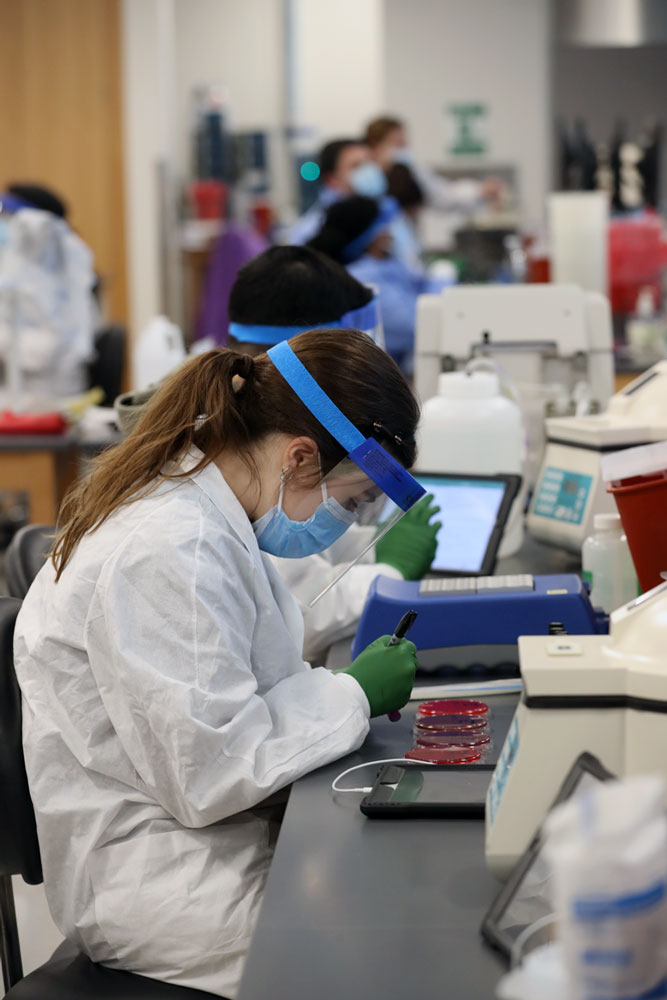The Profession
The lives and health of patients often depend on specialized tests performed by clinical laboratory scientists (medical laboratory scientists, medical technologists). Using microscopes, specialized staining techniques, chemical analyses and highly sophisticated precision instruments, medical laboratory scientists perform tests on the fluids, cells, and tissues of the human body. These tests provide data for 50% to 80% of important medical decisions including interpreting the patient's symptoms, monitoring treatment, researching the causes of diseases, and developing new methods for treatment and diagnosis. In addition to performing the many types of crucial laboratory tests, medical laboratory scientists analyze results, manage information and communicate with other members of the health care team.
 Some of the specific duties a medical laboratory scientist performs are:
Some of the specific duties a medical laboratory scientist performs are:
- Identify bacteria and determine the best antibiotic for treatment of the infection
- Microscopically classify and differentiate normal and abnormal cells, microorganisms, and crystals
- Operate complex electronic instruments to analyze blood for the presence of normal, abnormal, and malignant chemical elements, cells and components
- Determine drug levels to asses treatment and to detect drugs of abuse
- Prepare blood for transfusion and match proper blood donors to recipients
- Test for and monitor treatment of bleeding and clotting disorders
- Evaluate the chemical and cellular composition of blood, urine, and other body fluids
- Examine responses of the immune system to foreign antigens and infectious organisms
- Perform quality assurance activities to ensure accurate and reliable data
- Operate, maintain, and troubleshoot sophisticated and computerized instruments
- Evaluate and implement testing protocols, procedures, and equipment
- Use computers for data management, inventory control and quality assurance
- Train others and write technical procedures
- Assess test results for accuracy and the need for confirmation or further testing
- Perform specialized types of testing including PCR, cytogenics, electrophoresis, paternity testing, flow cytometry, and cell marker technology
The medical laboratory is typically divided into the following five disciplines:
- Medical Chemistry - the study of chemical reactions that occur in normal and diseased processes
- Hematology - the study of the cellular elements of the blood and blood forming tissues
- Microbiology - the study of microbiological aspects of infectious disease, and the isolation and identification of pathogenic microorganisms
- Immunohematology - the application of theory and principles of blood banking, cell typing, compatibility testing, and antibody identification
- Immunology - the study of antigen and antibody interaction in the diagnosis of disease
To find out more information about the MLS profession, please review the following published articles: